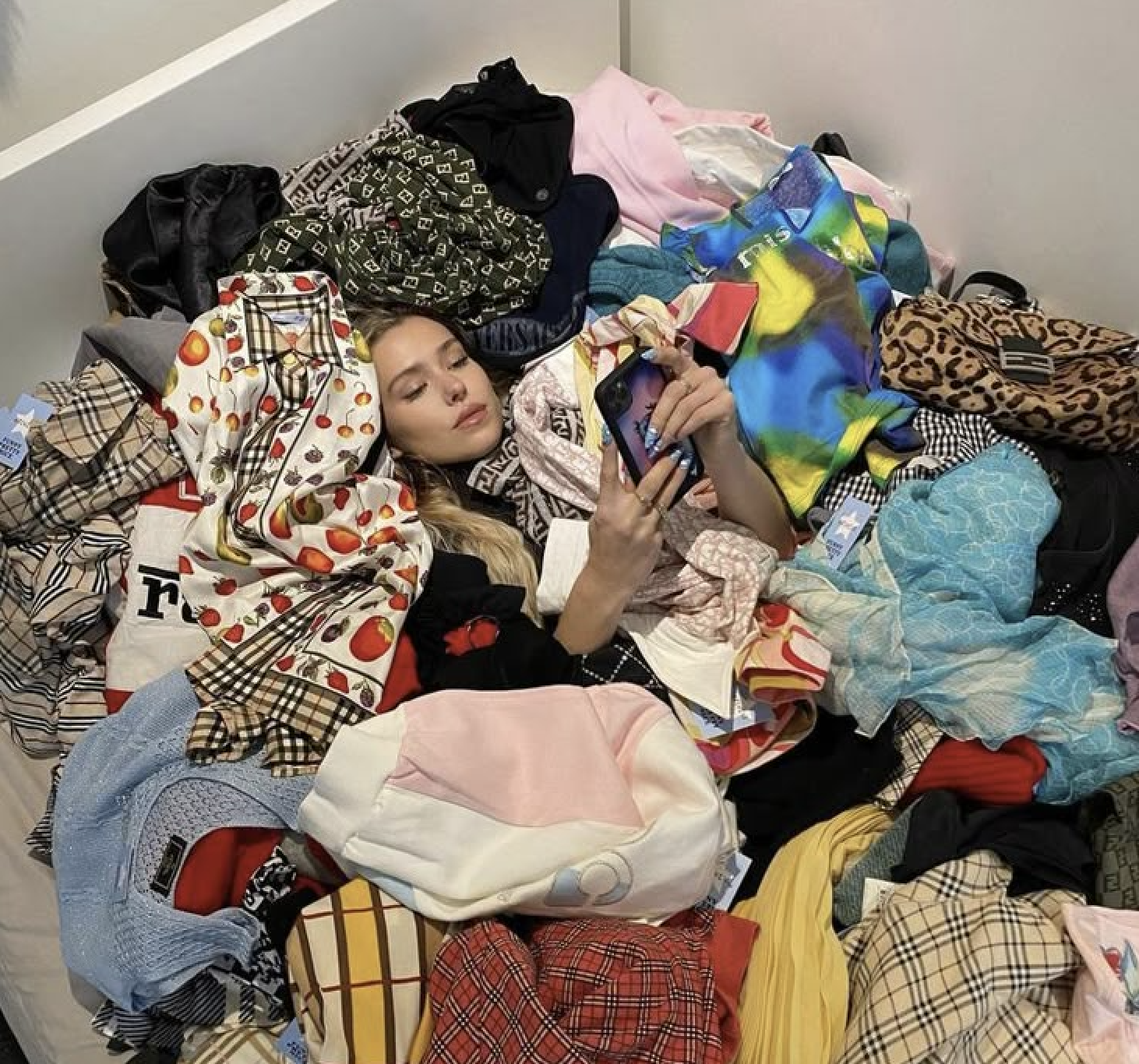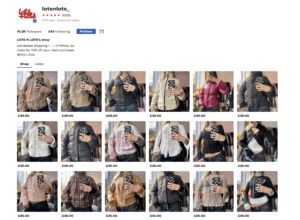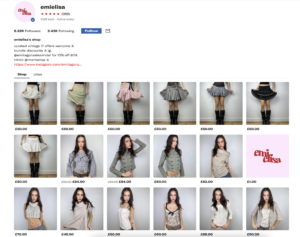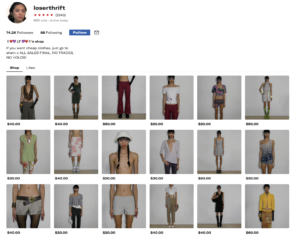In recent years, the global fashion industry has come under intense scrutiny for its noteworthy environmental footprint. The rapid expansion of fast fashion—a business model characterized by the swift turnover of cheap, trendy clothing—has resulted in alarming increases in textile waste, excessive water usage, and high levels of carbon emissions.
Each year, millions of tons of clothing end up in landfills, while the manufacturing processes consume vast quantities of natural resources.
In response to these pressing issues, a vibrant movement has emerged, championing the second-hand clothing market as a sustainable alternative. By purchasing and selling pre-loved attire, consumers can effectively minimize waste and embrace eco-friendly practices that are essential for the preservation of our planet. This practice not only extends the life cycle of clothing but also fosters a culture of mindful consumption.
One of the leading platforms revolutionizing this trend is Depop, a social shopping app that has garnered a passionate community of users dedicated to buying and selling vintage and second-hand items. Through Depop, resellers craft unique shops filled with an eclectic array of fashion finds, from retro apparel to high-end designer pieces, all at accessible price points. I’ve listed some of my favorite shops that are unique to both sellers and buyers. Support sustainability by clicking the images below.
This platform empowers individuals to participate in the circular economy, showcasing how a shift towards sustainable fashion can significantly diminish the environmental impact of the industry. As users engage in this peer-to-peer marketplace, they are collectively contributing to the critical reduction of the fashion sector’s ecological footprint, promoting a more sustainable and responsible approach to style.
Reducing Waste and Extending the Life of Clothing
One of the most impactful environmental advantages of purchasing second-hand clothing lies in the significant reduction of textile waste. The fashion industry contributes a staggering amount to global waste, with estimates suggesting that approximately 92 million tons of textile waste are generated each year worldwide. When consumers opt for second-hand items, they play a crucial role in diverting these garments from overflowing landfills. This choice allows clothing to experience a second life, rather than being discarded and contributing to the environmental crisis.
Also, reselling garments promotes a strong culture of reusability and sustainability as Depop encourages its sellers by providing statistics related to sustainability.
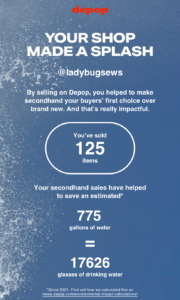
Rather than perpetuating the cycle of constantly acquiring new items, consumers are encouraged to share and exchange clothing they no longer wear or need. This shift in behavior not only minimizes the demand for newly produced apparel but also promotes a sense of community and responsibility towards our planet.
Platforms like Depop exemplify this emerging trend and have gained tremendous popularity as vibrant marketplaces for individuals to buy, sell, and trade pre-loved clothing. Depop, in particular, stands out for its user-friendly interface and its emphasis on unique, vintage, and often hard-to-find pieces.
The platform is a bustling hub for fashion enthusiasts, allowing users to showcase their styles while contributing to a circular fashion economy. As consumers explore this dynamic online marketplace, they are not just making eco-friendly choices; they are also discovering one-of-a-kind treasures that tell a story, encouraging a more thoughtful and sustainable approach to fashion.
Reducing the Demand for New Clothing Production
The fashion industry is notorious for its substantial environmental footprint, stemming from various resource-intensive processes involved in clothing production. For instance, the cultivation of cotton alone requires vast quantities of water, often straining local water supplies in regions where this crop is grown. Also, the manufacturing of textiles demands significant energy, much of which is derived from fossil fuels, contributing to alarming carbon emissions. Again, the transportation of these garments, often shipped internationally, exacerbates the industry’s contribution to climate change through increased greenhouse gas emissions. In contrast, buying second-hand clothing presents a sustainable solution to this pressing issue by effectively reducing the demand for new garment production. When consumers choose to shop for pre-owned items, they inadvertently contribute to a decrease in the overall volume of new clothing being manufactured, which can help mitigate the industry’s detrimental impact on the environment.
This is where Depop resellers play a critical role in promoting sustainability within fashion. By meticulously curating and reselling high-quality pre-owned garments, they provide an enticing alternative to the endless cycle of new purchases. From vintage treasures that tell a story to contemporary designer pieces or simply cherished items that have seen a good amount of love, each transaction on Depop serves as a meaningful step toward shifting away from the prevalent “buy new, throw away” mindset that pervades the modern fashion landscape. Through this platform, consumers can not only express their unique style but also participate in a growing movement that values sustainability and mindful consumption.
Exploring the impact of Depop resellers on sustainability
Depop has emerged as a key platform for resellers who are not only giving buyers access to second-hand clothing but also actively engaging in sustainability initiatives. These resellers often possess a keen sense of style, a solid understanding of the fashion industry, and the ability to identify high-quality pieces that others might overlook. Many of them are adept at upcycling or restyling garments, effectively revamping items that could easily go unnoticed.
The Depop community is predominantly composed of younger consumers who are especially mindful of environmental issues. Numerous sellers take pride in promoting sustainability, whether through sharing eco-friendly practices or emphasizing the need to reduce consumption. Their posts frequently serve to educate buyers about the environmental advantages of opting for second-hand items and provide tips for prolonging the lifespan of clothing. Furthermore, Depop has simplified access to a global marketplace for resellers, enabling them to connect with buyers who may not have access to local second-hand clothing stores. This global reach enhances the impact of buying and selling pre-owned clothing, contributing to a broader movement toward sustainable consumption on an international scale.
Supporting Ethical Practices
The second-hand clothing market, particularly platforms like Depop, champions ethical practices that stand in stark contrast to the detrimental impacts associated with fast fashion, which frequently depends on exploitative labor and environmentally harmful production methods. Numerous resellers on these platforms are dedicated to curating collections of apparel that not only feature sustainable materials—such as organic cotton, recycled fabrics, or eco-friendly dyes—but also come from manufacturers that uphold fair labor standards. By choosing to purchase from these conscientious sellers, consumers actively contribute to a movement that promotes sustainable business practices, benefiting the environment and supporting fair wages and safe conditions for workers globally.
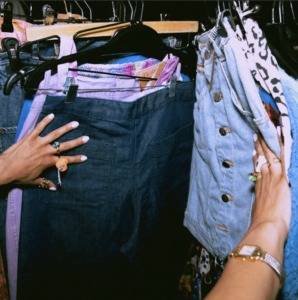
Furthermore, the resale market fosters a more conscious and thoughtful approach to fashion consumption. Shoppers are encouraged to thoroughly investigate the background, craftsmanship, and provenance of the garments they acquire, moving away from the mindless pursuit of fleeting trends. This evolving mindset nurtures a deeper emotional connection with the clothing worn, encouraging individuals to appreciate the artistry and history behind each item. Ultimately, this shift not only leads to more intentional purchasing decisions but also cultivates a culture of appreciation for quality and sustainability in the fashion industry.
The Environmental Impact of a Circular Fashion Economy
The idea of a circular economy—where products are not simply thrown away but are instead reused, repaired, and recycled—is gaining significant momentum in today’s society. This shift is particularly evident in the booming second-hand clothing market, which is being powered by digital platforms such as Depop and Poshmark. These platforms serve as vibrant marketplaces where individuals can easily buy and sell pre-owned garments, effectively playing a crucial role in reducing fashion waste and promoting sustainable consumption.
By focusing on garments that have already been manufactured, both resellers and consumers are actively participating in a transformative process that aims to close the loop within the fashion industry. This not only diminishes the demand for new raw materials—such as cotton, polyester, and leather—but also significantly reduces environmental pollution associated with the production and disposal of new clothing. The environmental benefits extend beyond resource conservation; they also encompass a reduction in carbon emissions and water usage throughout the supply chain.
As the trend of second-hand shopping becomes increasingly popular among consumers, especially younger generations who value sustainability, the fashion industry is gradually adapting to embrace more eco-friendly business practices. This cultural shift could pave the way for a future where clothing is no longer viewed as a disposable commodity. Instead, it will be recognized as a valuable resource that deserves to be shared, reused, and repurposed, leading to a more responsible and sustainable fashion ecosystem. Ultimately, this approach could foster a profound change in how society perceives and interacts with clothing, encouraging a move away from fast fashion toward a more conscious and circular model.
The rising trend of buying and selling second-hand clothing has emerged as a formidable strategy for combating environmental degradation. Online platforms like Depop, Poshmark, and ThredUp have revolutionized the resale market, making it more accessible for individuals to engage in sustainable fashion practices. By facilitating the exchange of pre-loved garments, these platforms empower consumers to actively participate in a circular fashion economy, where clothing is reused and repurposed rather than discarded.
Purchasing from resellers often supports independent and small-scale businesses that prioritize ethical practices, fostering a more responsible approach to fashion. As more shoppers and sellers embrace the allure of thrifted finds and vintage treasures, the fashion industry is gradually shifting towards a more sustainable and eco-conscious future. This movement not only addresses environmental concerns but also promotes a unique style that values individuality and creativity over fast fashion trends. The impact of this growing community signals a promising change in consumer behavior, where the appreciation for quality and sustainability takes precedence in the global fashion landscape.
Browse my own shop by clicking the image below.
